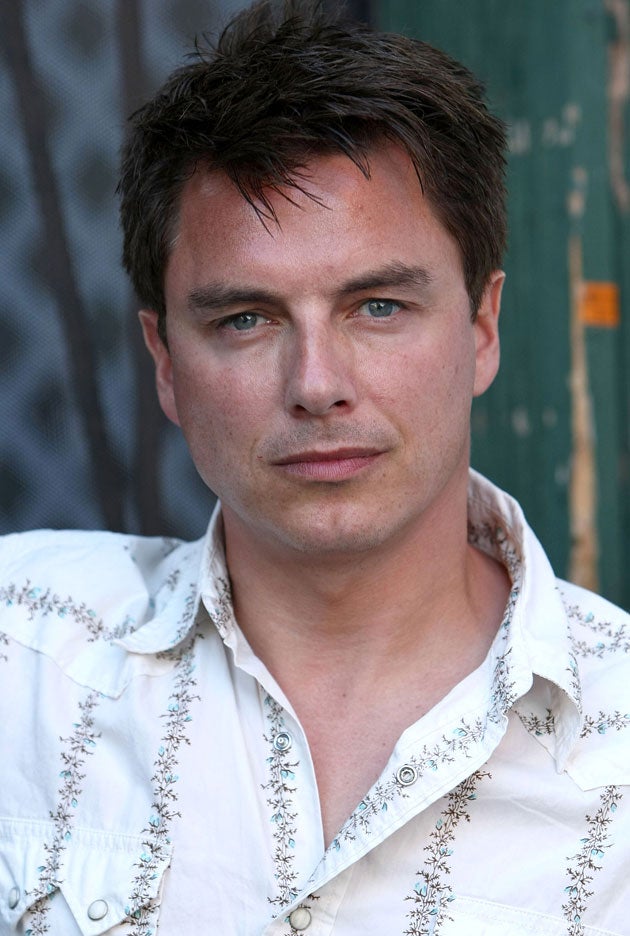Last Night's Television - Torchwood: Children of Earth, BBC1; Apollo Wives, BBC4; My Breasts Could Kill Me, SKY1
On another planet

It's all happening in Cardiff this week. Tomorrow, England and Australia embark on a five-part series for the Ashes, cricket's most venerable prize. And last night, Captain Jack Harkness (John Barrowman) embarked on a five-part series to save the planet from ashes, in another welcome dose of the high-class hokum that is Torchwood.
For the uninitiated, Torchwood is a spin-off from, and indeed an anagram of, Doctor Who, created by the excellent Russell T Davies. The Torchwood Institute itself is meant to be an organisation countering extra-terrestrial threats, set up by Queen Victoria, no less, which I take to be a waspish joke from Davies, the gag presumably being that the old dear didn't believe in lesbianism, but was quite prepared to accept the existence of little green invaders from outer space. I might have that wrong, but certainly Davies is happy to let his own homosexuality inform his writing, most notably in Queer as Folk, but also with a homoerotic sub-plot in Torchwood: Children of Earth, which last night yielded a fleeting yet passionate gay kiss. Jon Pertwee will be turning in his Tardis. Or perhaps looking at his frock coat and flamboyant scarf and wondering whether he missed something.
Anyway, as I say, it's all happening in Cardiff, where Harkness and his team got wind of a most peculiar business involving all the children in the world, who at 8.40am went into a collective weird trance. Funnily enough, our youngest child also went into a weird trance at 8.40 this morning, as he does every morning when he is told to clean his teeth just before leaving for school. But at least he hasn't yet started chanting "We are coming" in a spooky way, as the kids did in Torchwood. At the Home Office, top civil servant John Frobisher seemed particularly spooked, saying "Bloody hell!", which was very far-fetched indeed since Frobisher is played by Peter Capaldi, the furiously profane spin doctor in The Thick of It. I can accept that Harkness doesn't age, and keeps being shot and coming back to life, and even that every child on earth appears to be possessed by aliens, but seeing Capaldi with the Prime Minister (here played by Nicholas Farrell) and not screaming obscenities at him, just seemed wrong, somehow.
Nevertheless, Torchwood is written, acted and directed with verve and wit, fully deserving its transfer to BBC1 and five nights of primetime even in the view of a man who has never wholly embraced science fiction, treasuring Star Trek-related chat in the pub mainly as an excuse to retell the old joke, "Uhura, Uhura!", "Yes, captain?", "Nothing, just clearing my throat."
In Apollo Wives, a cracking documentary about the women who were married to the Apollo astronauts, one of the wives recalled that their young children back in the late 1960s never thought that the latest rocket launch was a particularly big deal. It was just something that daddy did. "But call them to supper during Star Trek and you had a problem," she said.
Sadly, but not surprisingly, of the 27 astronauts who were married at the time of their Apollo missions, 19 subsequently divorced. One of them even cheated on his wife while their baby son was dying of leukaemia, a reminder that the bravest of the brave can also be the lowest of the low. And while the command modules returned the men safely to earth, the wives often couldn't keep their husbands' feet on the ground. Instant global superstars, they were surrounded by groupies for whom there was no greater prize than bedding an astronaut. But also, in fairness, I wonder whether men who had been to the moon could be expected to immerse themselves in humdrum domesticity? This story was told entirely from the perspective of 10 wives, seven of whom were ex-wives, some still with axes to grind. One even wrote a rather good song about her grievances with her "macho man". But I don't suppose they were all paragons of understanding: "Listen, sweetie, it's been no sea of tranquility for me while you've been away, Chuck junior's been teething ..."
Whatever, the wives have been having reunions since 1992 and deriving great comfort from them. It is a dimension to the whole Nasa programme to which, even during the razzmatazz marking the 40th anniversary of the first moon landing, I don't suppose any of us had given much thought. And the documentary was all the more fascinating for it.
Finally, a situation to which, unlike marriage to an astronaut, all too many women can relate. The journalist Dawn Porter's mother died of breast cancer aged only 36, when Dawn was six, and that was the launch pad (I like to sustain a theme) for a terrific programme, the unambiguously titled My Breasts Could Kill Me, in which she looked into her own vulnerability to the disease. Breast cancer is diagnosed in 45,000 woman a year in this country, and it kills more than a quarter of them. That's a statistic that can never be repeated too often.
Subscribe to Independent Premium to bookmark this article
Want to bookmark your favourite articles and stories to read or reference later? Start your Independent Premium subscription today.

Join our commenting forum
Join thought-provoking conversations, follow other Independent readers and see their replies